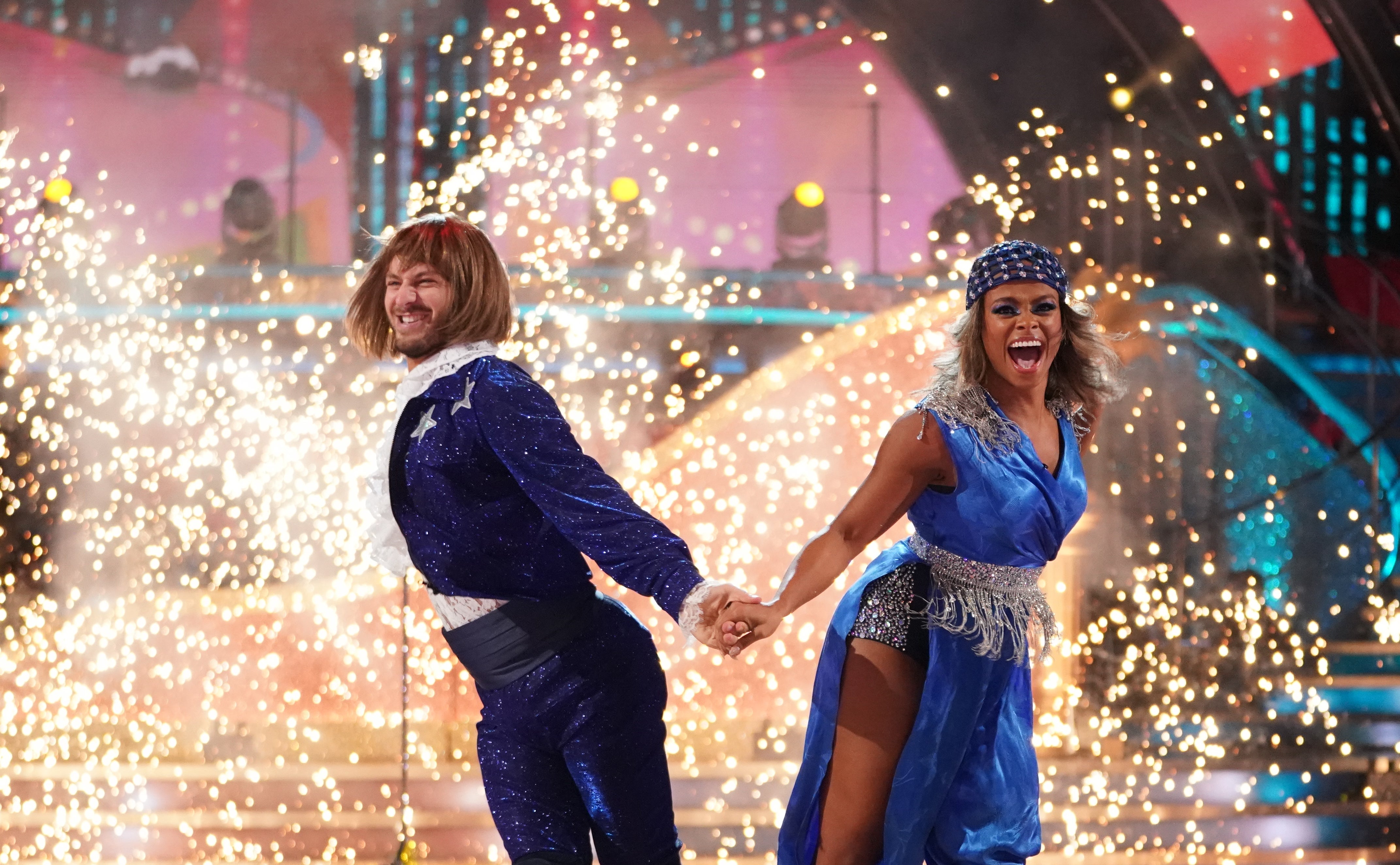
Five words guaranteed to strike fear into a Strictly contestant’s heart: “I’m being really picky now.” When Craig Revel Horwood nitpicked Fleur East’s jive to “Waterloo” during Strictly Come Dancing’s baffling BBC centenary show, it was with that apologetic qualifier. The judge had only pointed out East’s “boisterous” top line and a timing mishap that lasted “literally three seconds”, he insisted, because she was so good. So good, in fact, that she seems to be held to slightly different standards. She was awarded a seven by Horwood, and one week later so was… Tony Adams. It begs the question: when is a sev-eeeeeeen not really a sev-eeeeeen?
On social media, viewers were quick to jump on the discrepancy. Why were undeniably excellent dancers like East and Molly Rainford receiving sixes and sevens for strong routines with a few minor issues, while significantly worse performers like Adams were being praised for seemingly having a stab at it? Watch East and Adams dance side by side and there would be no competition, yet she sat only one mark higher than Adams on last Saturday’s leaderboard. It prompts the same discussion every year: that the scoring on Strictly is as annoying as those dodgy CGI segments they’re hell-bent on using to make the dances look fancy.
If Strictly was purely about dance skill, someone like East or Rainford would be scoring nines and 10s with every routine. They would receive back-to-back 40s from week nine onwards. Adams, meanwhile, would have received a run of one and two marks for his first dances, progressing to fours and fives – if he’d made it this far at all. That would make the show fairer. But it wouldn’t be nearly as fun.
This is because, on the one hand, we have Strictly the dance competition, but we also have Strictly the reality TV show. After all, 20 series in, this is a tried-and-tested format with entertainment at its core. It rewards perseverance and loves, almost to the point of fetish, a “journey” – to see a total non-dancer transformed into someone with rhythm. Say what you like about Adams’s dancing, but his progress has been astonishing. In week one, he stumbled through his tango to “Go West” (with added “1-0 to the Arsenal” chant) with bent knees and a jutting out bum, contorting his body into a shape I didn’t know humans could be, all the while looking like he could vomit at any moment. Yet in last week’s quickstep, he was unrecognisable, dancing with light feet and a changed confidence. Were there a mini glitterball trophy for ”most improved”, it would go to him, for sure.
Adams has improved drastically – more so than someone like East, who was good at the start. So should the judges reward him for that? I don’t think anyone would argue his quickstep was comparable with her Halloween salsa, and it was frustrating that a tight leaderboard put her in the dance-off once again. But in a world where the routines were judged objectively, the obvious frontrunners would suffer too, reaching their peak too early in a manner that doesn’t endear them to the public or give them that elusive journey, the highs and lows.

It’s important to remember that dance isn’t objective, either. Yes, there are pointed toes and heel leads that the judges can point out and viewers can pick up on (I definitely throw around the term “fleckerl” in a way unbefitting my total lack of rhythm). When someone trips, loses the beat or drops their partner, that’s obvious. But some dances have an indescribable it-factor that can’t be broken down into technique. One judge might feel it, while another doesn’t. That’s why we get marks from all four of them.
We can all scream at the TV when Horwood gives Adams a higher score than a more natural mover like Rainford, but a show where only the best dancers progressed wouldn’t make for particularly good telly. A wildcard like Adams, who surprises us with every routine, does. Anyway, there always comes a point, in the end, when the voting public says “enough now” and agrees that the “joke” act can’t conscionably be kept in any longer and gives them the boot. Adams will go further, and better dancers might leave the competition before him, but realistically he’s not going to win the show. The marking might be silly, but the judges’ paddles don’t win Strictly – good dancers do.







